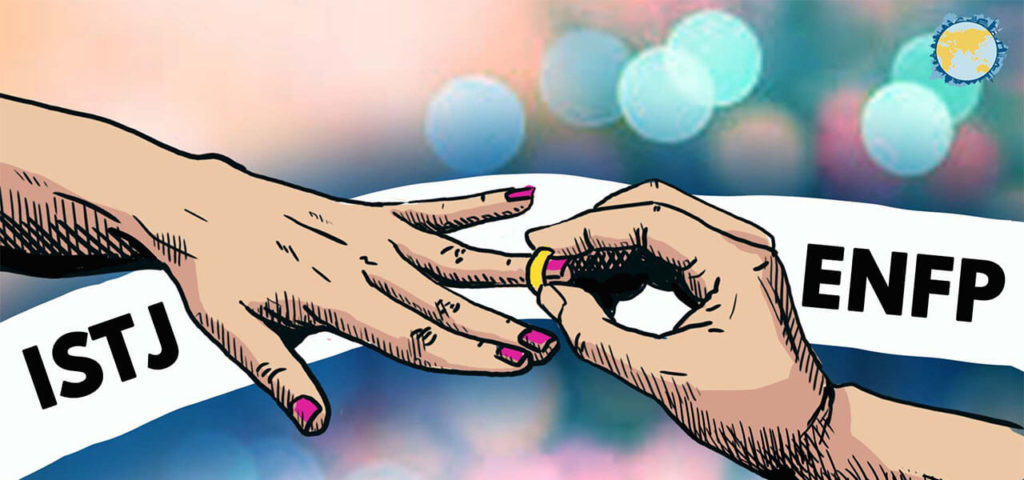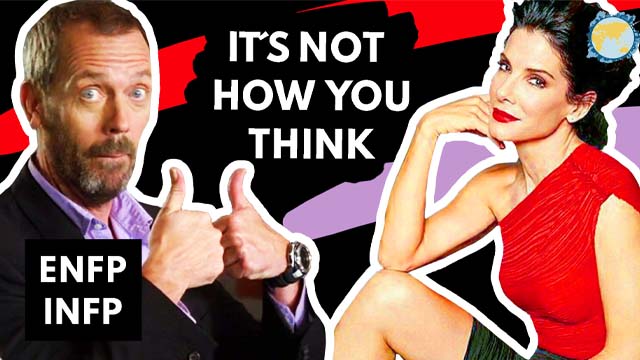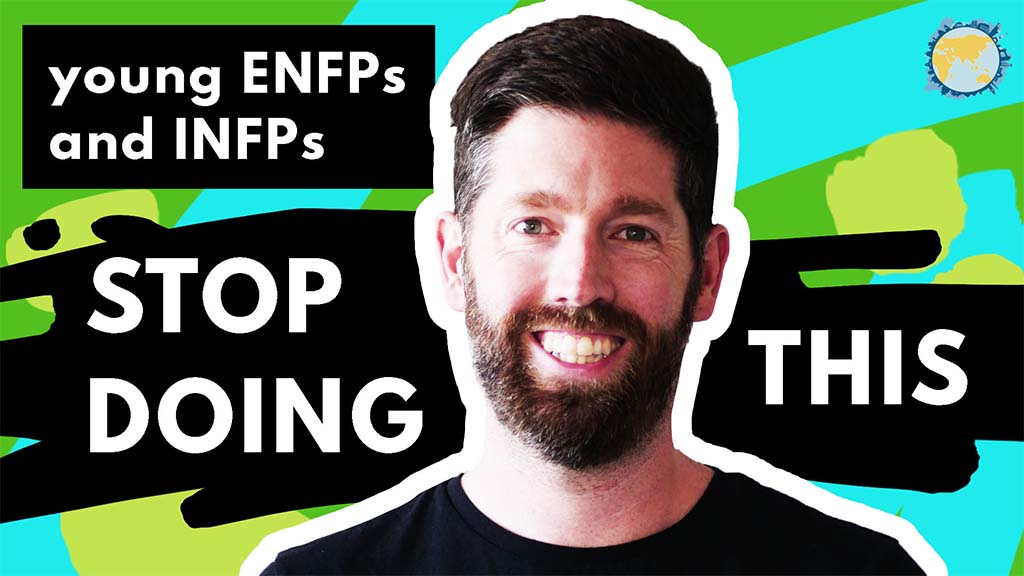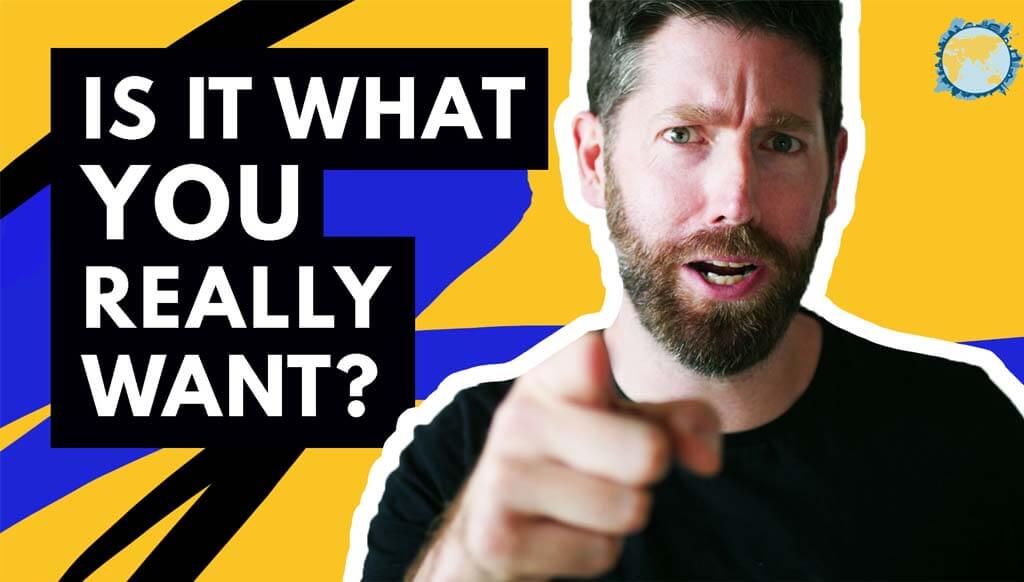Myers-Briggs Type Indicator – Know Your Type
Here is an interview with Eric Thor. This video was posted on my Youtube channel
If you prefer reading, here is a video transcription made with Otter.ai
MBTI Type Indicator, doing tests online and figuring out type in general
Dan Johnston: Excited to talk to you. I’ve been following your channel for three years now and I think I emailed you two or three years ago, just to give you some props, and we’ve both been on YouTube for probably a similar time.
One of the things that you’re very good at is going deep into the psychology behind MBTI and other personality types and you’ve even developed your own system, which I like because of the concept that it is based on, about being in the flow, etc. and we’ll get into that later.
There were a few big themes I wanted to talk to you about. One is figuring out your type in general.
I get so many emails from people saying my type is this, or I was this, but sometimes I’m this and sometimes I’m that… and of course, being a channel that mostly talks to ENFPs and INFPs I’ll get comments posted on completely unrelated videos, for example, my video on how to build a freelancing career gets comments such are “I’m sometimes an INFP and sometimes an ENFP…” and I wanted to get your expertise on that because It’s not something I am anywhere near an expert on.
Dan Johnston and Erik Thor discuss Myers-Briggs type indicator and personality type testing
Erik Thor: So I want to first go back to what you’ve said about flow and I like that you brought that up because that is kind of the center of what I’m trying to do. I’m trying to connect the study of personality types to something valuable. Meaning I’m trying to apply the study of type to understand how people enter into a state of flow, or how they can get more energy and joy and motivation and meaning out of life.
So I’m thinking how can you use type theory to become more confident in yourself and to be more secure in who you are and that’s also why I was interested when you send an email to me because I’ve studied your channel as well and I like how when you talk about type when you’re talking about MBTI you tend to connect it to real-life issues and practical psychology and you’re able to apply that theory to also discuss relationships and lifestyle decisions and freelancing and all those things.
I feel that that’s what people should do. A lot of people get lost in just coming up with different theories about how psychology or type could work, but few will actually say: “Well, what can I do with this knowledge? How can I use this? To understand my own life…”
Dan Johnston: Definitely. If you’re living in your parent’s basement, playing World of Warcraft, 30 hours a day, then on discord, the other 30 hours debating type psychology, you might have missed, you know, some of the key parts of it.
Erik Thor: Yeah, like what I see what some of those people that are stuck, not knowing what personality type they are. A lot of these people are people that haven’t really actualized into any personality type. Well, of course, they have a personality type.
It’s only that because they are spending so much time in their basement playing World of Warcraft, they don’t have a chance to go out into life and really experience deep relationships, deep conversations, difficult life decisions, and choices about work and career and all those things, and it’s when you make those choices, and it’s when you’re faced with those questions like: “What kind of a partner do I want? Where do I want to live? What kind of life Do I want for myself?” that’s when you kind of start to really understand what personality type you are and what kind of person you are.
Dan Johnston: That’s a very, very good point.
Erik Thor: So often, when people come to me and they feel lost about their personality type, often what I tell them to do is the first thing you need to go is you need to go out and live life and experience that and then after that, process it and reflect on what it meant for you and who you are in that, what you experienced…
Dan Johnston: Very good point. I think too, we change a lot. It came upon a call I had the other day, someone was saying I think I’m an INFP type now because I’ve always been an ENFP but I’ve been working from home for so long and I don’t feel like going out as much, so now I test as an INFP, and I just had to politely mention – No, that isn’t the case. It’s just the testing is so shitty that your standard tests out there are just not that good… I think it was you who said it on an interview, and I think I’ve used this from you before in private conversations where you were saying: “The test is like, do you want to stay home and read a book, or do you want to go out and do cocaine at a rave?” It’s like the extreme types of questions that It asks…
Erik Thor: Yeah, you can use those, and that’s often when people are introduced to the MBTI, they are usually introduced to the kind of a stereotypical, dumbed-down, simplified version of what MBTI is. So you have like 16 personalities and those websites, where people basically just get to hear the most extreme version of every personality type, like the ENFP, is the crazy unicorn who dresses in all rainbow colors and goes out and chases ideas and doesn’t think about what’s smart or anything and sometimes we embody the stereotypes, I mean It was very easy for me to figure out I was an INFJ, and It went pretty fast for me to find my way into that personality type from discovering the MBTI, but there are a lot of people that are on the borders of that type for our special subtypes or have had special experiences in life that make it more difficult to “type” themselves.
Erik Thor’s MBTI (Myers-Briggs) system and how he does things
Erik Thor: So if I would just introduce my way of doing personality psychology to somebody who doesn’t know me, what I would say is I type based on flow. So I look out for – are you at your best, as opposed to when you are stressed. So I recognize that people have different sides to themselves. So I say okay, when tired or when lacking in motivation, or when stressed or when anxious, you will go into these set of traits, and when you are in a positive state, you feel good about yourself, you feel motivated, you will go into the opposite set of traits. So that’s what I’m seeing, the pattern I’m noticing is an INFJ at their best is an INFJ. INFJ type at their worst is an unhealthy kind of twisted version of an ESTP.
We have inherent associations to each kind of personality or personality trait, we talk about alone time as something positive and enriching, energizing, or we talk about something draining and boring and stale, and our associations and our feelings about these things, they are the thing that really determines our personality type.
So for me, when I talk about personality type, I’m less interested in just the pure cognitive function approach, which is like, do you have this? Or do you do that? Do you Ni or do you Ne, because I know everybody can use any cognitive function, anybody can think or do anything they want to do at any specific time, you can train yourself to be able to handle almost any kind of situation, you can learn to be more quiet or more reserved, or you can be more outgoing in different situations. So that’s also why people tend to feel so confused about their personality type, because they will find themselves maybe going into a new environment where they can be very open with themselves, and where they will feel they can express themselves, and they’ll struggle because in the past, they know that they’ve been quite inhibited, and they’ve felt quite unsure about themselves and they’ve been afraid to express themselves, and so they think: “Have I changed my personality type, have I become somebody else now because I’m more open with myself or am I still the same?” You might find yourself thinking: “Why am I like that in this situation, or that in this situation…” you know, when you got first into MBTI you tend to be pretty much like: “Oh, I am this type and all this fits me perfectly!”, you know, this is so great, but then a few months into that, you start noticing that: “Hey, I’m not like that…” OR “I’m not that, I don’t relate to that version of that personality type…” or “This description doesn’t really fit to me all the time or I’m not always like this…” So you notice that it’s more complex than what you thought. So everybody has what I noticed – a subtype. So, a unique way of developing or using their cognitive functions or developing themselves and, for example, you have more outgoing INFJs and you have more reserved or inhibited INFJs you have more proactive and decisive INFJs, more adaptive INFJ’s, you have INFJs that are less intuitive than average. Still, all INFJs are very intuitive, but you have INFJs that are less intuitive than INFJs. and more practical…
Dan Johnston: How do you think other mental conditions play over? This is something I’ve thought about before, like if someone has ADHD, or some level of like, obviously, some personalities connect more with ADHD as a concept, you know, ENFPs joke about it a lot. But in terms of real mental conditions, you know, if someone has severe social anxiety, or bipolar disorder, or ADHD, my thought is always that that is not changing your underlying type, but it will affect obviously, your behavior and everything. Are we on the same page on that?
Erik Thor: Yeah, I’m definitely on that page as well. I don’t think your type is associated with a special kind of function disorder. Like you can’t say that a certain type is more autistic or one type is more prone to ADHD or so because I’m seeing more than the cognitive dysfunctions like ADHD and so on. So you have people with ADHD that struggle with focus and self discipline and that tends to be the primary pattern for those with that kind of cognitive function disorder. Most of the people who have ADHD have issues with focus and self discipline, and I think any type can have that impairment. I think you can talk about even INFJs that have issues with ADHD, even though naturally their type is more inclined to enjoy focus, and that just means they have different challenges to finding balance and finding focus and finding discipline even though it doesn’t come easy to them.
Dan Johnston: Yep. It makes total sense. I have I have a good friend who’s an INTJ with ADHD. And on a big picture, his life plays out very much like an INTJ. It makes total sense. In the moment, he has a difficult time, you know, not being on his phone every 27 seconds or things like this…
Erik Thor: Yeah, like we live in a distracting world nowadays, as well. So I think we’re all struggling with phone use, and I noticed myself that when I take up the phone, I am inhibiting myself from really thinking about the situation. So I’m trying to tell myself, I should put the phone down and focus because my mind needs quiet and needs silence to be at its best.
Embracing negative stereotypes about your personality type
Dan Johnston: Yeah, definitely. One of the things I tried to crack down on, let’s say, are comments on my videos and stuff, are people really embracing those negative stereotypes. So on ENFP videos, I get all common comments about, you know, how you can’t pay attention, and anything more than three minutes is hard to follow, and I don’t know about them, but I listened to 15 hour audiobooks, and I often turn my phone off for a full day. And it’s, you know, these are byproducts of our culture and maybe related a bit too, maybe somewhat related to type like we may be our extroverted intuition likes to take in more information, so we’re more likely to bounce around a little bit more. But you do not have to be who we are by any means. And I really dislike that. Same with the testing, like you read the profiles on 16 personalities or something and its weaknesses, and they lay it out and like, it’s not necessarily flattering or helpful. In many cases,
Erik Thor: I have been connecting the cognitive functions to the archetypes that Yung worked on for a long time. And I’ve always kind of been titling Extraverted Intuition as the investigator, but I’m almost starting to move more towards the researcher, because that’s what I’m starting to see that Extraverted Intuition is. Extraverted Intuition is a passionate desire to learn and absorb information and to figure things out. So it is really constantly gathering data, often of an abstract nature or a mental nature.
Dan Johnston: Yeah, I would agree with that, as someone who has extroverted intuition, that that’s definitely it.
Erik Thor: That’s what I’m seeing with myself, I mean, INFJs, we are specialized towards Ni. So we are specialized towards conceptualizing an idea and spending all that time and as much time as possible, just in love with that process of figuring things out for ourselves, in our own head, how we think things should work or how things could be. But what I’m seeing with ENFPs is it’s always like, let’s try it out, let’s test it, has anybody else done this, what is what other people think about this, anybody else read or written something about this that I could learn? So it’s always like that… Let’s go get some data first…
Dan Johnston: Yeah, definitely, definitely. And I’m realizing more and more like, we do have some original ideas. But there’s definitely an aspect of taking in a lot of information quickly, and being able to sort of put it together, see the patterns and build off other people’s work. And then in many cases, I think, explain it or teach it well, like sort of see how it all comes together. Now, not necessarily spending a year going really deep into one area and formulating something original from that.
Erik Thor: No, it’s too abstract for you. And you’ll start thinking, well, what if there’s no point and what if there is nothing real come out of this. So you, the inclination is, of course to learn. And of course, if you’ve come up with something, by connecting different ideas together, the outcome is going to be original no matter what was done. Your original original ideas and original name idea, no matter how it came about. So if it came up from a discussion with a bunch of different people, it’s still your connections, it’s what you saw, and your founders and your imagination. So it doesn’t matter how it came about, if it came about internally or externally. It’s just inspiration.
Dan Johnston: I like what you were going back to a bit earlier talking about flow. And I think we’re very similar in that what we’re interested in with MBTI and psychology and personality, psychology, in general is application and actually helping people. And you know, I started using Instagram more, which I was opposed to for many years. And I’m happy I have been because you get a lot of direct messages from people. So where otherwise you wouldn’t get emails from say, YouTube or things like that people will reach out and say nice things, usually. And a big one is people saying like, I’ve always felt shitty about being an ENFP. Which is weird to me, because it’s weird in a bunch of ways I understand it. But I guess it’s a mix of reading the basic reports, which are originally designed… I think MBTI was around World War Two, it was designed to just like quickly put people into jobs. I got my history, right? I bought the book on the history of it, I just haven’t started it yet. So it’s very much like for a manager as well to look at very quickly, like, will this person fit this job? You know, will they be good on my assembly line? Or you know, will they be great in the accounting office or whatever, it’s not based on like, the way I look at building a team and working with people is where people at their best and you know, how can you create the environment where that person can really do what they do well, and you know, that way rather than – Okay, here’s what they’ll be bad at, here’s what they’ll maybe be good at…
Using MBTI (Myers-Briggs type indicator) correctly
Erik Thor: I see also a lot of people are using The MBTI incorrectly, I see a lot of YouTubers who use the MBTI to kind of attack different personality types, focusing on their negatives focusing on their weaknesses, and thinking too categorically about MBTI because there is nothing about you that you cannot develop or outgrow or mature away from. So if you have any struggle that you have in your life, through persistent effort and hard work, you can develop those things and improve yourself and talking about the personality type it sounds like – So this type is good at that and this type is bad at that is going to be inefficient or inaccurate because any type can learn to be good at anything…
Erik Thor: For me, that was very difficult also being so social all the time, and having a friendly tone when you talk to people on the phone, or all those things were toxic for me, and of course, they are draining and I don’t want to do them as much as possible. But I’ve learned to do it. And I know that I can do it. And I found a way to kind of reprogram my mind to sustain it and to do it in a positive way for myself.
Dan Johnston: Yeah, that’s a very good point. It’s about how we approach things, for example ENFPs need some level of challenge and being under pressure to get things done. So you can take a project that might not need to be challenging, but you can design it for yourself to make it challenging. And a lot of us do that without realizing it just by doing things last minute. And then feeling bad that we do things last minute. And I try to encourage people like if that’s when you do your best work, rather than what a lot of people do say with that example is procrastinate, most of the week feeling guilty that they’re procrastinating this project, and then they do it all on Saturday, Sunday for Monday, I say like go out, have fun all week, and then just start at Saturday, knowing that that’s your pattern. That’s what works for you. And then you have the same pressure without the guilt.
Erik Thor: Very much so. So you can set the deadline for tomorrow. And I see a lot of successful ENFPs do that. So they tell themselves it has to be done now. They never put things off, they won’t make a decision about this next week, They’ll make a decision about this now. And if I make a decision about it now I’m gonna have to do it now. And that’s how they kind of fixed the issue of procrastination…
Dan Johnston: Yeah, that’s a very good way to do it. And I don’t think we get much better at decisions If we give it more time. I’m sure other people do. But I never make better decisions. If I sit on it for three weeks, I just like whatever I decide in the moment. It could be worse, or it could be better but as far as I’ve seen with myself, there’s no clear evidence that sitting on things leads to better decisions. So might as well make it now and move on.
Erik Thor: Personally, I’ve always been lazy my entire life, at school and growing up, I’ve always been a person that didn’t put enough effort into anything because I never had to because I was able to figure things out and get around it and deal with it. So I found myself doing things too slowly and taking a long time with a lot of things…
Dan Johnston: That’s interesting. I think I have the ability to get things done really quick and that comes directly from doing things last minute, and then developing that… You know – I have four hours to get whatever done because this or that… I don’t do that as much now but you know, growing up both perhaps as an ENFP or perhaps related to being an ENFP, I should say, and I also have ADHD is – I would just do things last minute and then you do get better and better at that but then as you get your life together, you’re like I have a lot of free time now because I’m used to working really hard for like two hours, not working gradually for eight hours or 10 hours or whatever it is. So if we could combine our skill sets, our two two issues then we would conquer the world. Probably.
Part two coming soon.




